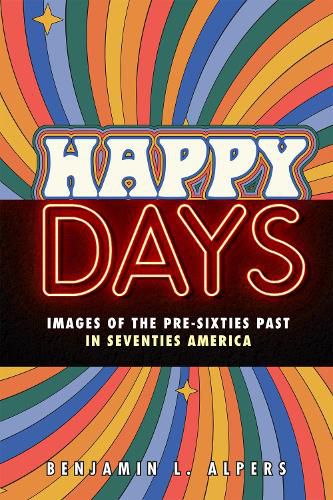Readings Newsletter
Become a Readings Member to make your shopping experience even easier.
Sign in or sign up for free!
You’re not far away from qualifying for FREE standard shipping within Australia
You’ve qualified for FREE standard shipping within Australia
The cart is loading…






After the techno-futurism of the 1950s and the utopian 1960s vision of a "great society," the 1970s saw Americans turning to the past as a source for both nostalgic escapism and serious reflection on the nation's history. While some popular works like Grease presented the relatively recent past as a more innocent time, far away from the nation's post-Vietnam, post-Watergate malaise, others like Roots used America's bicentennial as an occasion for deep soul searching.
Happy Days investigates how 1970s popular culture was obsessed with America's past, but often offered radically different interpretations of the same historical events and icons. Even the figure of the greaser, once an icon of juvenile delinquency, was made family-friendly by Henry Winkler's Fonzie at the same time he was being appropriated in more threatening ways by punk and gay subcultures. Cultural historian Benjamin Alpers discovers similar levels of ambivalence toward the past in 1970s neo-noir films, representations of America's founding, and neo-slave narratives by Alex Haley and Octavia Butler. By exploring how Americans used the 1970s to construct divergent representations of their shared history, he identifies it as a pivotal moment in the nation's ideological fracturing.
$9.00 standard shipping within Australia
FREE standard shipping within Australia for orders over $100.00
Express & International shipping calculated at checkout
After the techno-futurism of the 1950s and the utopian 1960s vision of a "great society," the 1970s saw Americans turning to the past as a source for both nostalgic escapism and serious reflection on the nation's history. While some popular works like Grease presented the relatively recent past as a more innocent time, far away from the nation's post-Vietnam, post-Watergate malaise, others like Roots used America's bicentennial as an occasion for deep soul searching.
Happy Days investigates how 1970s popular culture was obsessed with America's past, but often offered radically different interpretations of the same historical events and icons. Even the figure of the greaser, once an icon of juvenile delinquency, was made family-friendly by Henry Winkler's Fonzie at the same time he was being appropriated in more threatening ways by punk and gay subcultures. Cultural historian Benjamin Alpers discovers similar levels of ambivalence toward the past in 1970s neo-noir films, representations of America's founding, and neo-slave narratives by Alex Haley and Octavia Butler. By exploring how Americans used the 1970s to construct divergent representations of their shared history, he identifies it as a pivotal moment in the nation's ideological fracturing.